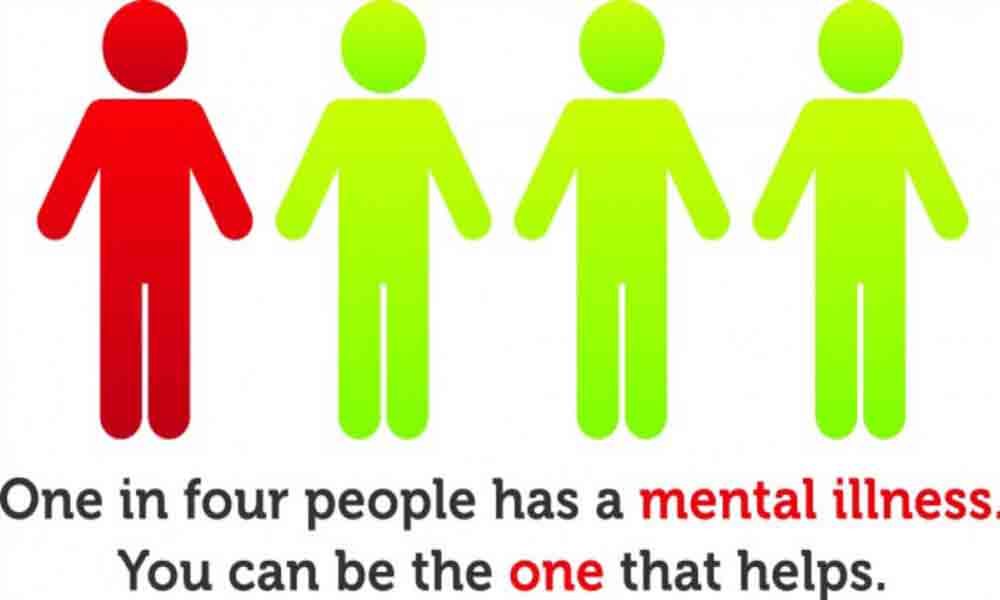Live
- Garena Free Fire MAX Redeem Codes for December 2024: Unlock Skins, Weapons, and More
- Dr. Ponguleti Sudhakar Reddy Welcomes Union Minister Piyush Goyal in Bengaluru
- Why Christmas is Celebrated on December 25: The Link to Roman Festivals
- Tributes paid to G Venkataswamy (Kaka)
- Amit Shah should quit; demand MP, MLA
- Hike in support price brings cheer to coconut farmers
- Apple's Face ID Smart Doorbell Could Unlock Doors by Late 2025
- Amit Shah must tender apology
- Govt’s focus on rural and tribal health: Minister Damodar
- Ramanujan’s birth anniversary celebrated
Just In
Urgent need to increase awareness about mental health


Globally there is a scarcity of professionals trained in evidence-based practices. Therefore, partnerships need to be formed between professionals from high, middle-and-low income countries to develop training manuals, workshops, and supervision for the mental health professionals
Sonepat: Lamenting that mental health is one of the most neglected developmental issues, the Principal Director of the Jindal Institute of Behavioural Sciences (JIBS) Sanjeev P. Sahni has stressed on increasing awareness and quality training among the para-medical fraternity.
"Mental health is regarded as one of the most neglected developmental issues in achieving internationally agreed development goals. Mental health workforce statistics in India reveal that mental health workforce per 100,000 population is significantly less than the recommended minimum level. There is an urgent need to increase awareness and quality training among para-medical fraternity," Sahni said at the 2019 annual meeting of the Academic Council of UN Systems (ACUNS) at Stellenbosch in South Africa.
He was speaking at a workshop on "Achieving the Sustainable Developmental Goal-3: Mental Health & Subjective Well-being: Towards Building Quality of Life" conducted by JIBS, a constituent of the O.P. Jindal Global University (JGU).
The delegation of medical doctors included Sanjeev P. Sahni and his team comprising of Mohita Junnarkar, Manjushree Palit and Tithi Bhatnagar. The panel focused on achieving two Sustainable Development Goals (SDG) targets. Firstly, promotion of well-being for all at all ages and secondly, the need for quality training for mental health professionals.
JIBS Deputy Director Mohita Junnarkar emphasised on the need to enhance and develop social and non-cognitive skills in children and youth such as self-control, self-awareness, empathy, among others.
Furthermore, she delved into the need to assess emotional well-being that entails self-control, self-awareness, empathy, realistic orientation, leadership qualities, among others, that are essential for flourishing and being successful in life. She also discussed the emotional well-being rubric that is being developed and validated by JIBS.
JIBS Additional Director Manjushree Palit deliberated on the need for psychosocial intervention training, mentoring and supervision for mental health professionals.
"Globally there is a scarcity of professionals trained in evidence-based practices. Therefore, partnerships need to be formed between professionals from high, middle-and-low income countries to develop training manuals, workshops, and supervision for the mental health professionals," Palit noted.
The concept of Subjective Well-Being, and strategies to optimize it were also discussed by the delegation. The need of positive organizational behaviour and workplace well-being was emphasised and discussed. Importance of concepts like hope and resilience to help individuals and societies to lead a good and rewarding life was also deliberated upon.
The workshop was well received by the audience at Stellenbosch. The teacher training workshops conducted by JIBS were applauded and possibilities of collaboration on training opened up with the African delegates.

© 2024 Hyderabad Media House Limited/The Hans India. All rights reserved. Powered by hocalwire.com






